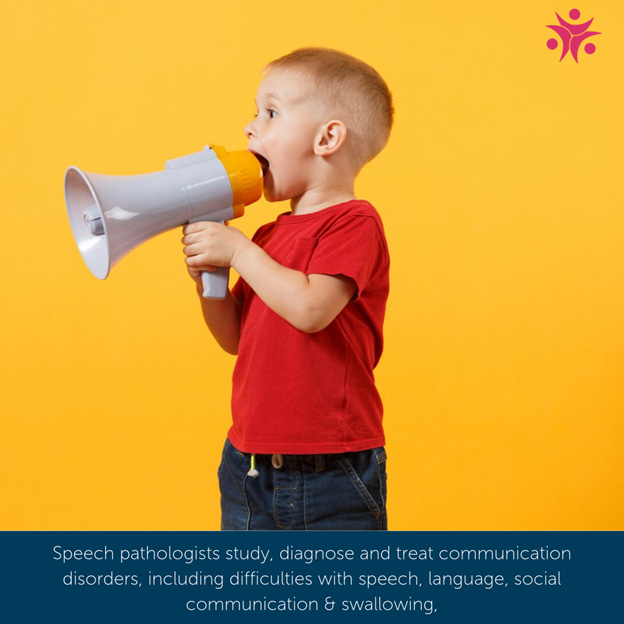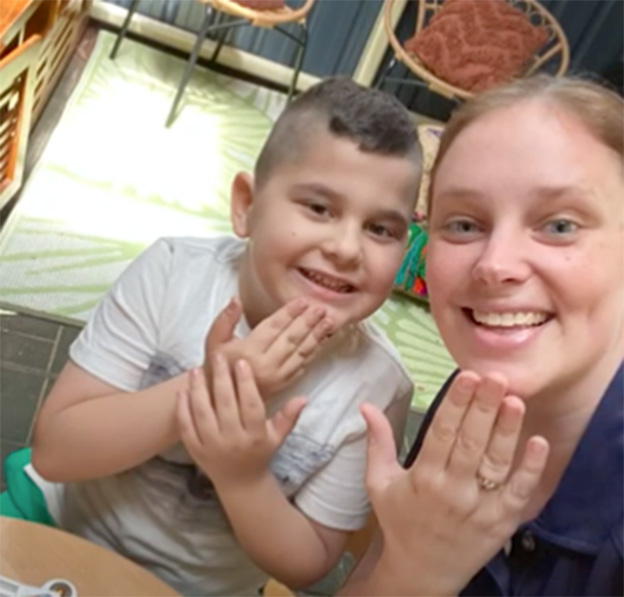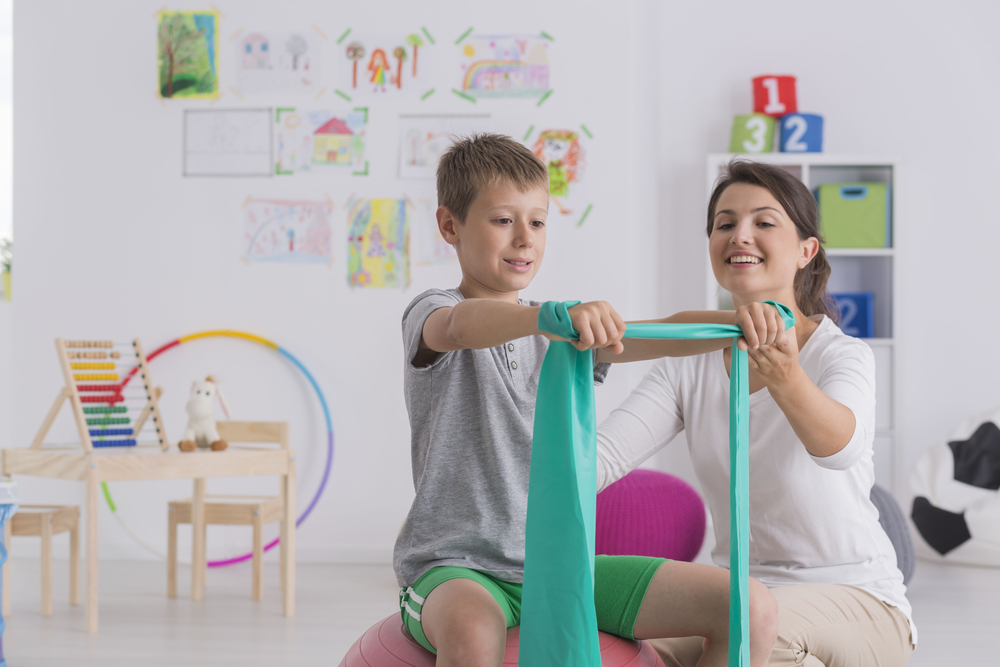Make an Appointment
Every child develops differently and one child might hit a milestone before another. Still, both kids could be developing in a perfectly normal way. However, if you notice that your child isn’t babbling like their siblings or peers, it could be an indication of a problem.
Speech pathologists can help parents figure out the root of potential problems and work with your child on their development. So, if you’re nervous that something is off, here’s what you need to know.
When Do Children Develop Speech and Language?
Between the ages of three and four years, there are a number of behaviours that your child should be displaying that signal speech and language development in the normal range.

In terms of hearing and comprehension, your three- or four-year-old child should be able to:
- Respond when you call to them from another room
- Understand words associated with colours, like yellow and red
- Understand words associated with simple shapes, like square and triangle
- Understand words associated with their immediate family, such as auntie and brother
- Understand the concept of yesterday and a week ago
- Do things that are asked of them, like “go to your room” or “get your shoes”
In terms of talking, your three- or four-year-old child should be able to:
- Ask and answer questions involving simple subjects, like who, what, and where
- Say simple rhyming words, like top-pop
- Use pronouns
- Use simple plural words
- Pronounce consonants
- Make conversation
- Use words in a way that most other people understand
- Can link four words together, even though mistakes may be made
- Talk about what happened to them that day using about four sentences at a time
What are the signs of a delay in speech or language development?
Your child may be experiencing a delay in their speech or language development if they show the following signs:
- Social interaction isn’t taking place
- They aren’t producing sounds, gestures, or words
- You and other people have a hard time understanding what your child is saying
- You notice a struggle when your child attempts to produce sounds and words
These signs should become more obvious if you have more than one child or if you expose your little one to social situations regularly.
Causes of Speech or Language Delays
Speech or language delays could be due to physical impairments, mental impairments, or hearing impairments.
- An oral impairment: Problems with the tongue, palate (roof of mouth), or a short frenulum (fold beneath the tongue)
- Oral-motor problems: Problems in the brain’s function in charge of producing speech
- Hearing problems including chronic ear infections
- Learning disabilities
- Autism spectrum disorder or cerebral palsy
Some of these causes can be sorted with surgery while others can be fixed permanently if caught early on. Others may stick with your child for life but a speech pathologist can help immeasurably.
How Do You Know If Your Child Needs a Speech Pathologist?
Of course, every child is different but if you have a gut feeling that your child might be delayed in their speech or language development, parents are often correct. There’s no harm in making an appointment for a speech pathologist.
Especially if your child is displaying some of the signs of delayed speech and language based on the examples provided above, it’s a good idea to get some help.
At Physio Inq, our mobile & home speech pathology services can come right to your home making the process easy and convenient for both you and your child.
What Can Parents Do to Help?
As parents, we’d do anything for our children and luckily, there are a surplus of ways to assist in your child’s speech and language development. Your speech pathologist will surely give you a few at-home exercises to try after your appointment but here are a few other ideas.
- Communicate with your child often.
- Read and sing to your child.
- Use everyday situations, like naming food at the grocery store or pointing out objects in the house.
- Eat your child’s favourite food without offering any – make the child use their words to ask for some.
- Play with something your child loves but don’t offer to share – have them ask to play along.
- Play games which require turn-taking by requiring your child ask for their turn.
- Store things in tight containers or store things out of reach which will require your child to ask for help.
- Turn off the television in the background – background noise will make it harder for the child to develop comprehension skills.
- Use straws, especially “silly straws” – drinking a variety of liquids through a straw and even blowing light objects using a straw can help strengthen the muscles needed for speech.
- Most importantly, praise their efforts when they’ve completed a job well done!
How can Books Help Your Child’s Language Skills

We sat down with Speech Pathologist, Emily Boardman in New South Wales to chat about the power of books used her sessions with her clients as well how books can help develop language skills & how pictures can help kids & adults to create an open world. 📖
Mobile Speech Pathology Services
You may be interested in a speech pathologist for your child but you’re nervous about sending them to a clinic where they might feel uncomfortable. While we can assure you that our facilities are warm and welcoming, we also offer mobile speech pathology services that come to you.
Now, we can work on your child’s chit chat in the comfort of their playroom where they can feel at ease and be more susceptible to improving their development.
We’re on the list of NDIS speech pathology providers so find out if your child qualifies for covered speech and language therapy. We have all the information ready for you so give us a call today to find out more.
Online Booking Mobile & Home Services Support Coordinators Click Here 1300 731 733 [email protected]
Date Published: Wednesday, September 25, 2019
Locate a Speech Pathology
Service Near me
Get the experience & convinence you deserve to support your or a loved one's allied health needs.
Our Speech Pathology team are currently serving & taking appointments in the following states and regions in Australia:
Need to get into direct contact with ur Client Services team? We're all ears. Call our team directly on 1300 731 733






